Set within vast grounds in the idyllic countryside, Edendale Lodge is a care home in wonderfully peaceful surroundings, nestled within the area of Crowhurst. As you approach Edendale Lodge you start to understand the appeal of this Crowhurst care home as a place suitable to enhance wellbeing and quality of life.
As specialists in Dementia the Edendale Lodge team of professionals are highly experienced in providing dementia care and 24hour support to those suffering the effects of Alzheimer’s, Parkinson’s, confusion and other similar conditions. Managed with genuine care and concern, residents can live a dignified life in a safe, secure and enabling environment.

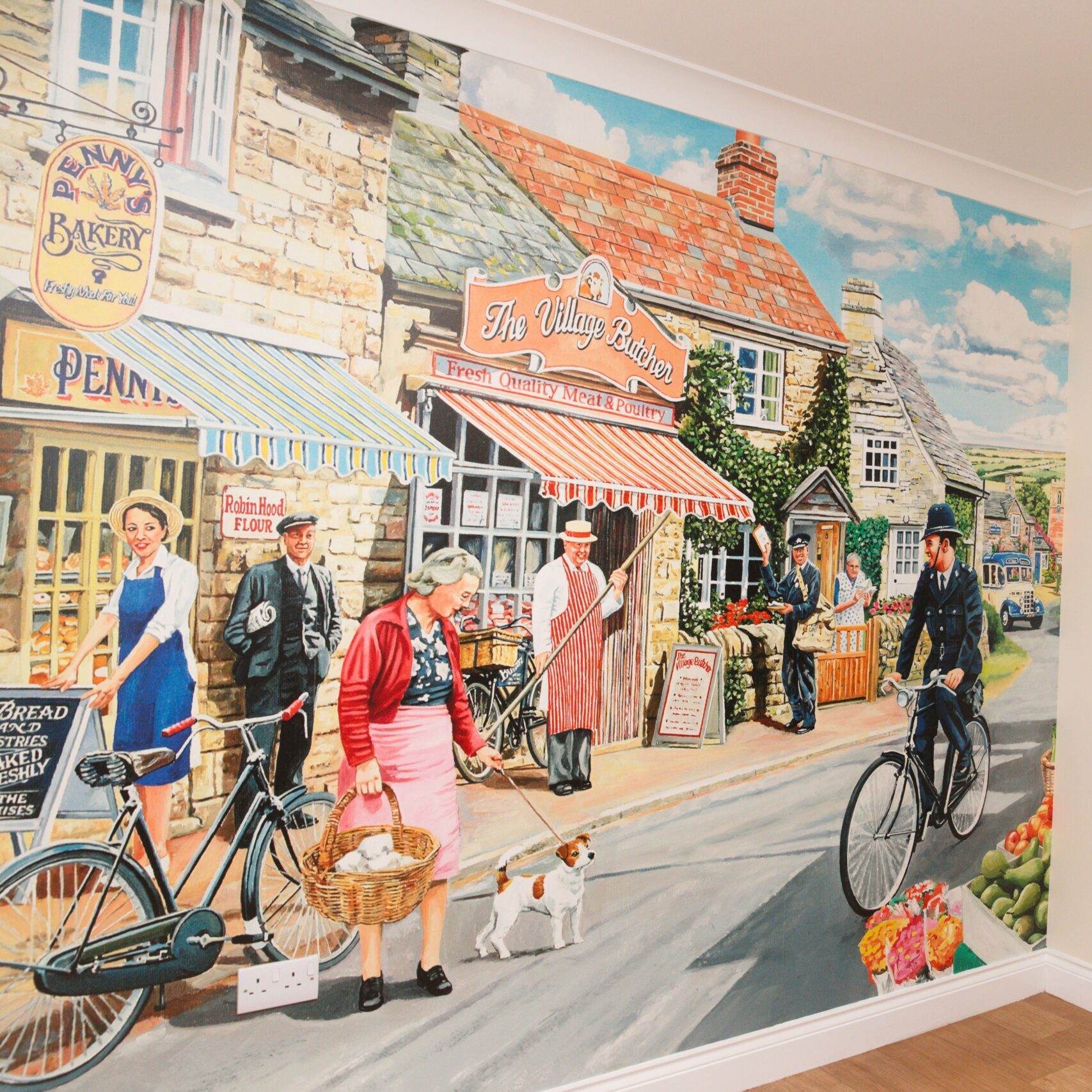
A painting of Edendale's community
Take a look at the care environment and surroundings that our residents and their loved ones enjoy at Edendale Lodge Care Home.
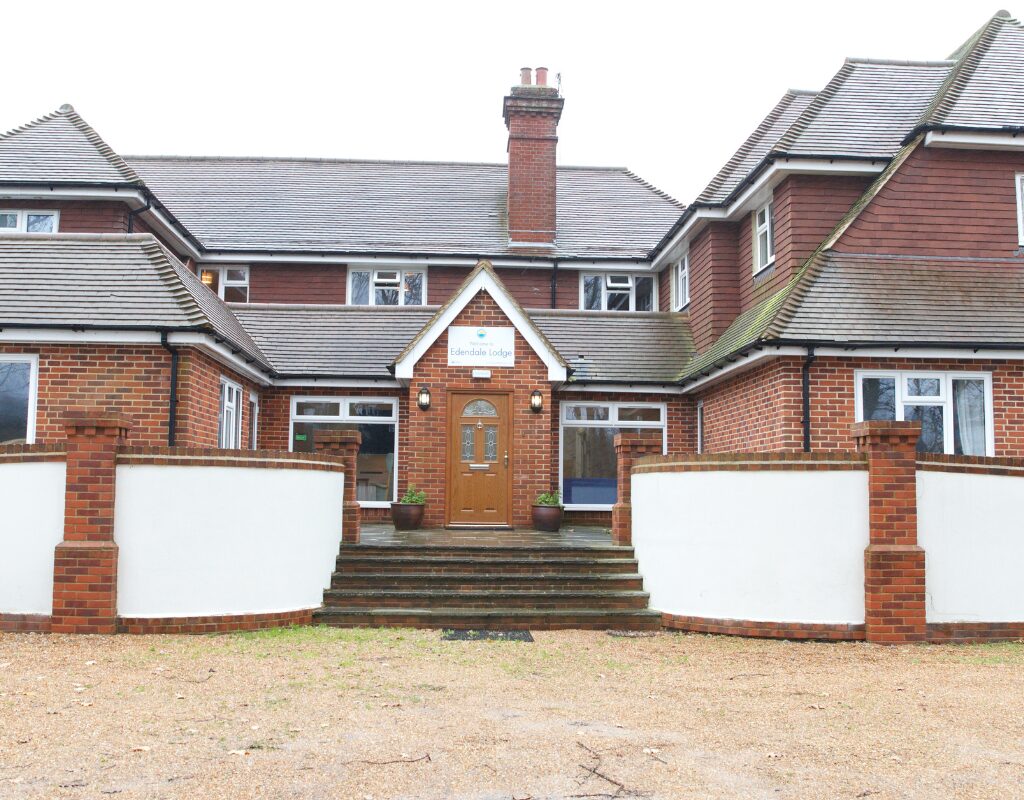
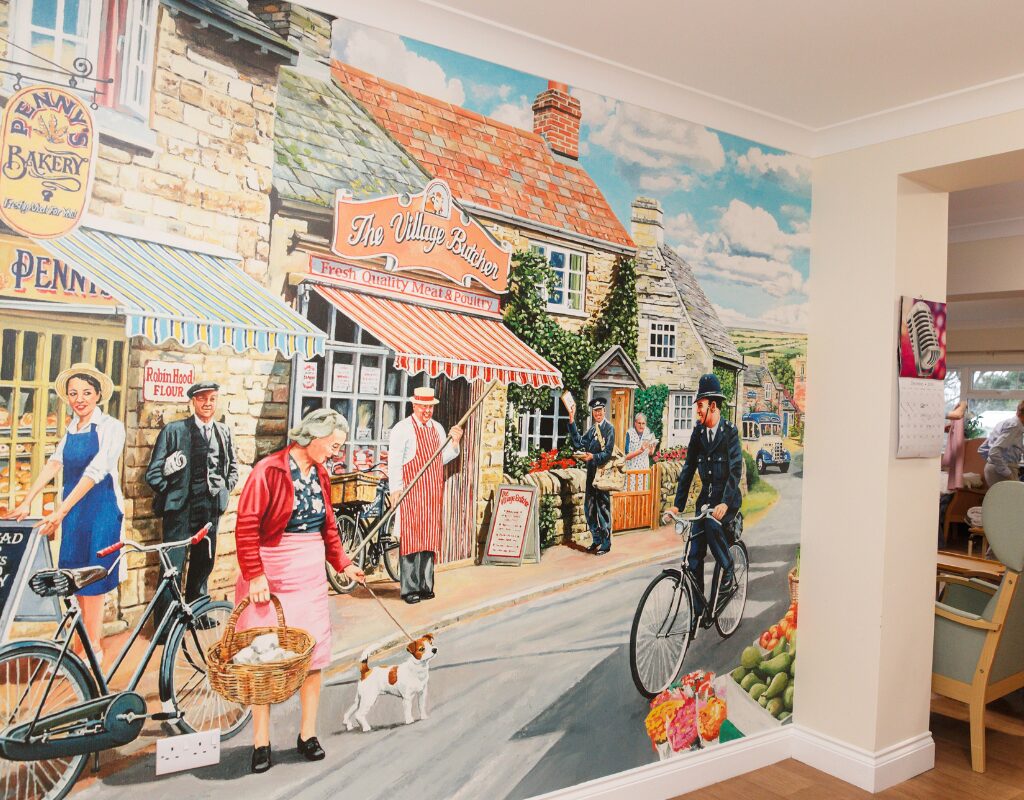
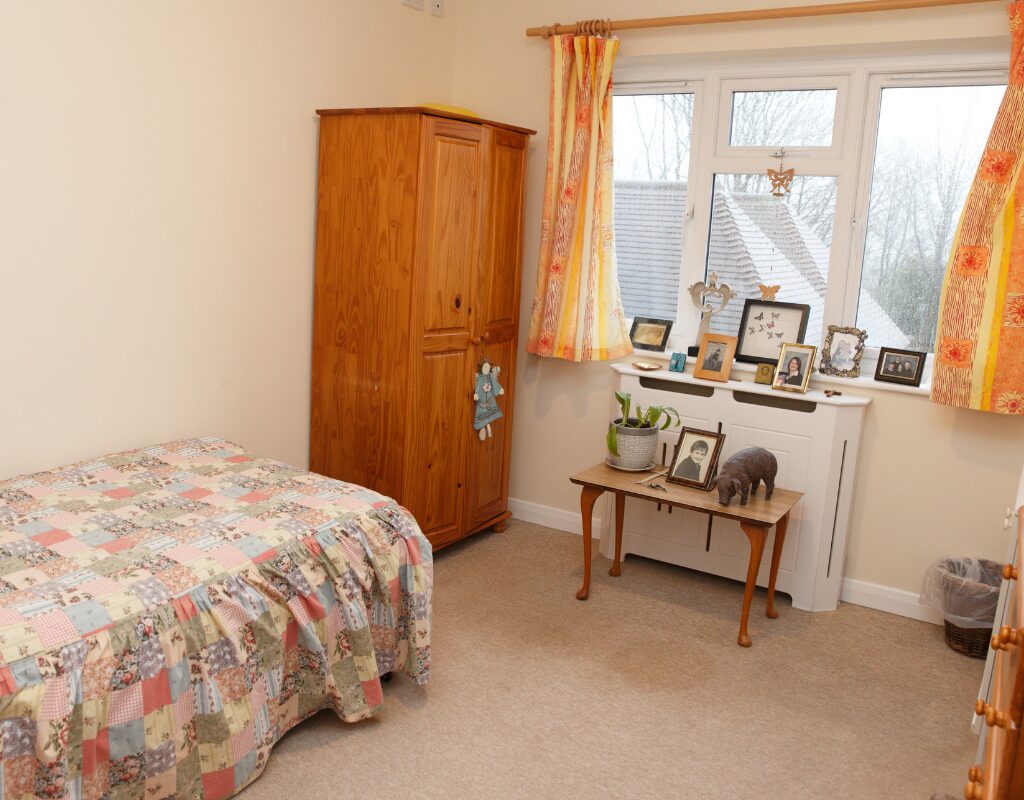
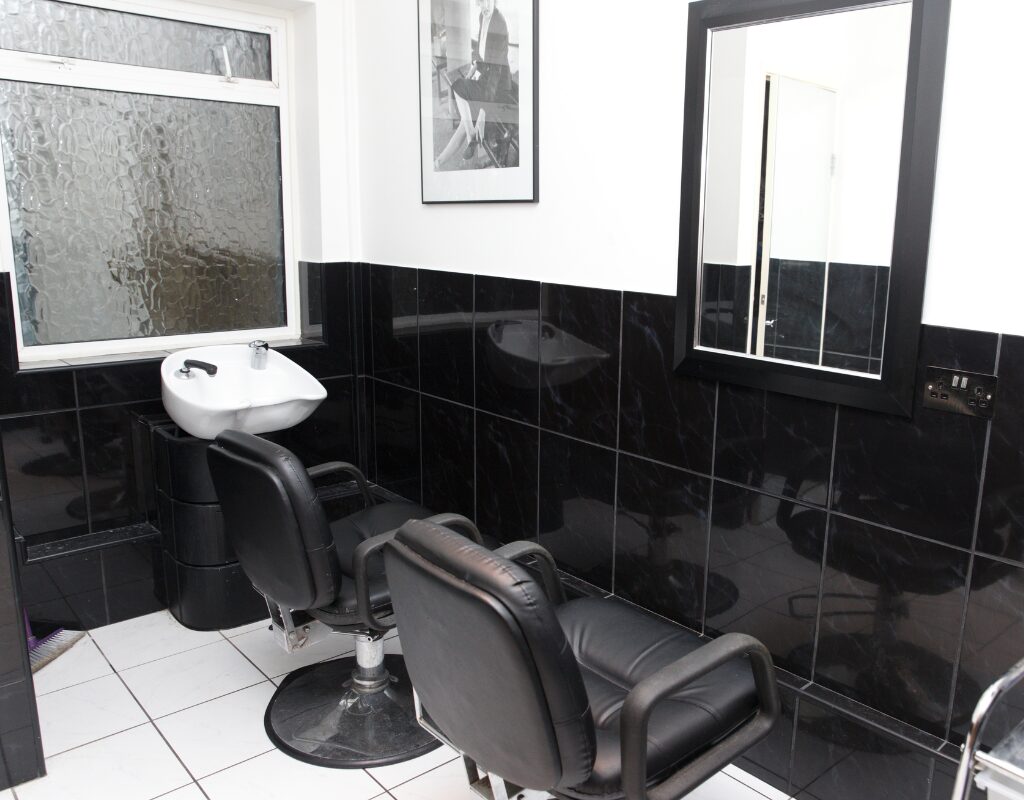
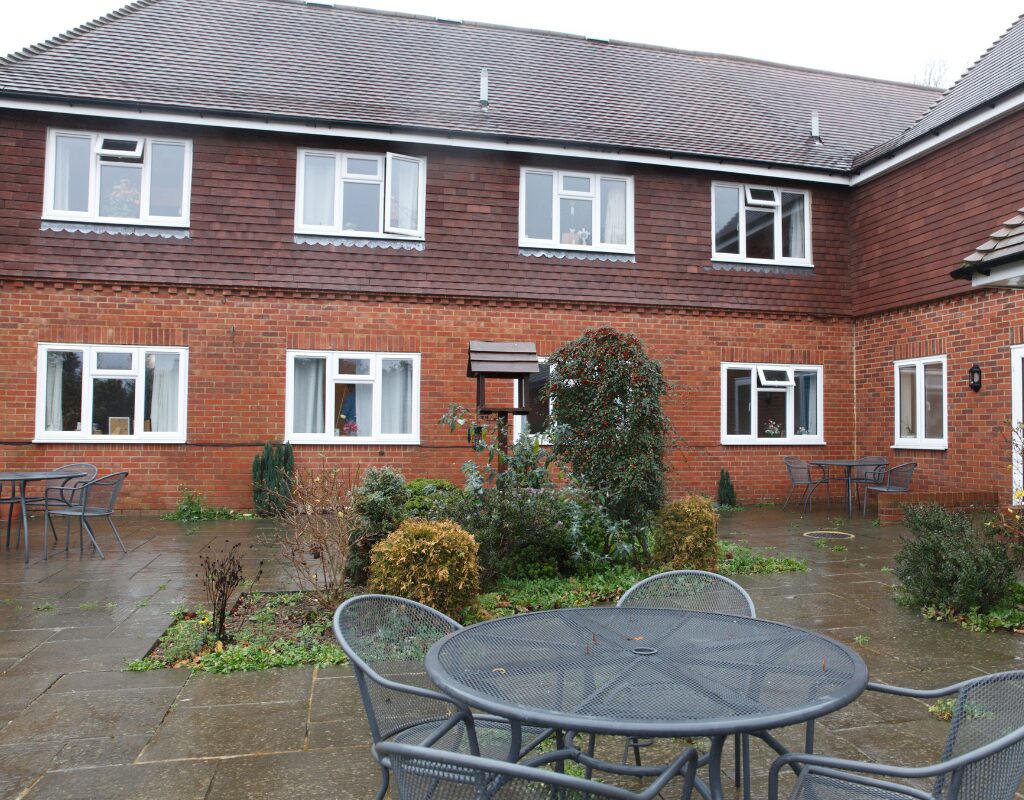
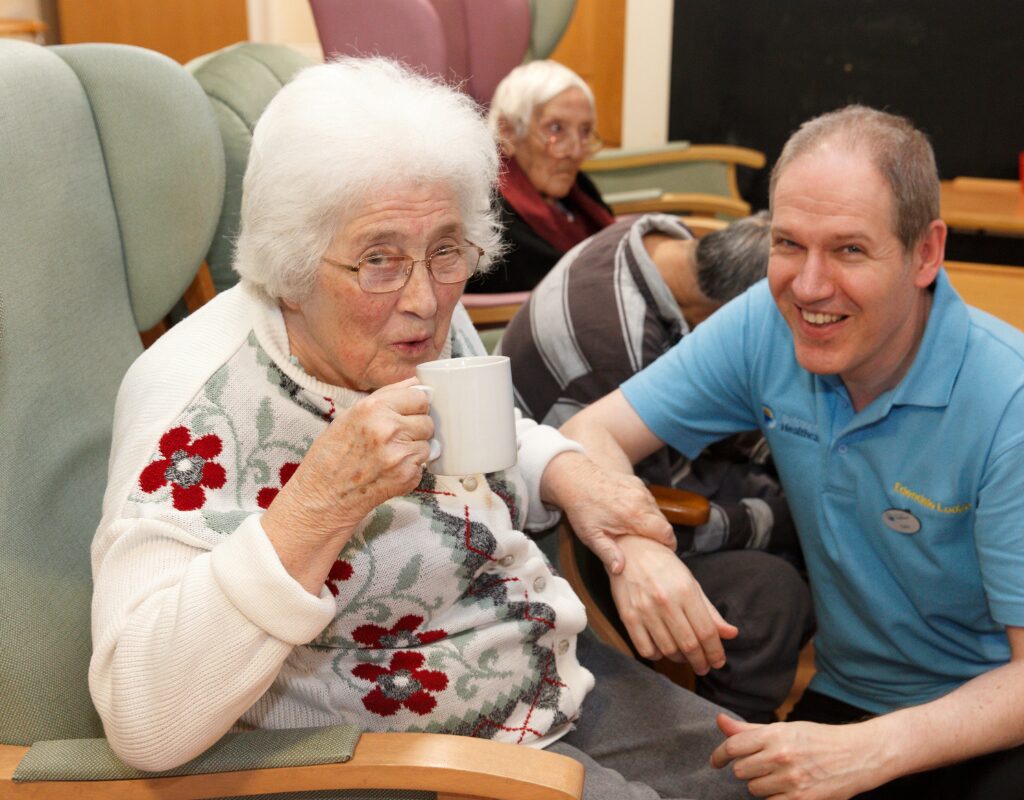
Here you can find out more about the care services we provide to residents and their families at Edendale Lodge Care Home.
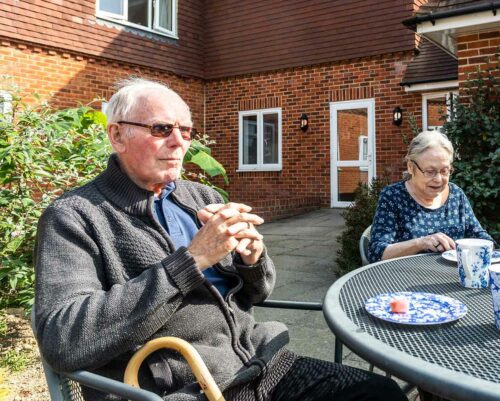
Individuals with minimal care needs who are either fully capable of living independently or require little assistance with care and daily tasks.
Residential care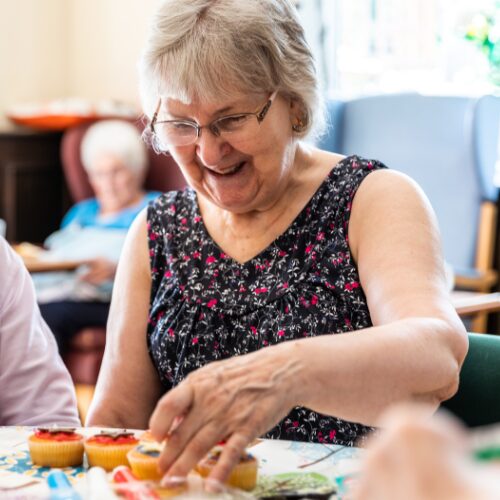
Individuals who have been diagnosed with dementia and are unable to live independently at home due to the need for 24-hour care.
Dementia Care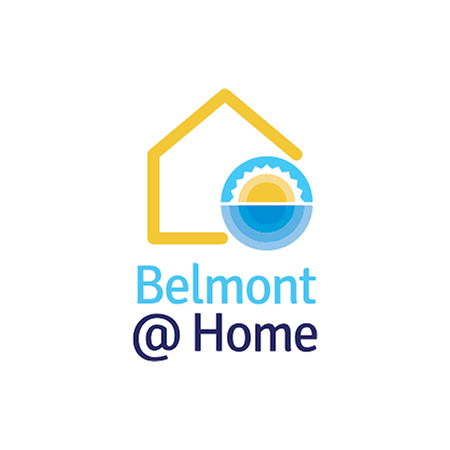
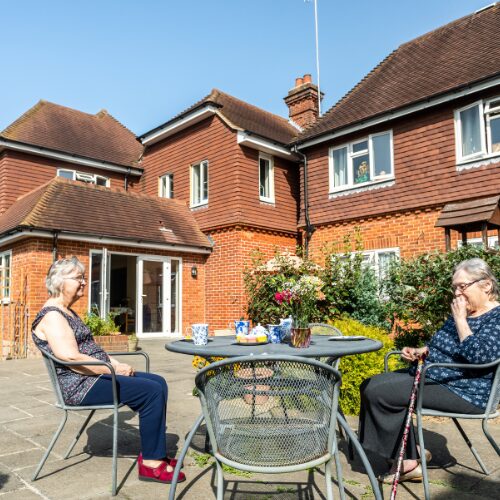
Individuals in need of a temporary living arrangement in a nursing home. Respite care, also known as a short care home stay, can last anywhere from a few days to weeks.
Respite and Rehabilitation CareOur 35 on-site bedroom home is stylishly furnished and includes en-suite bathrooms and a range of facilities and spaces to provide residents with a safe, secure, and enabling environment. Our residents also benefit from beautifully cooked meals, engaging and uplifting activities, a choice of areas to relax or socialise, and beautiful landscaped gardens that can be enjoyed all year round.
For all enquiries, including arranging a visit to Edendale Lodge, please complete the form at the bottom of this page, call 01424 830295, or visit the ‘Contact us’ section below.
Station Rd, Battle TN33 9DB
See what our home’s residents and their families say about Edendale Lodge.
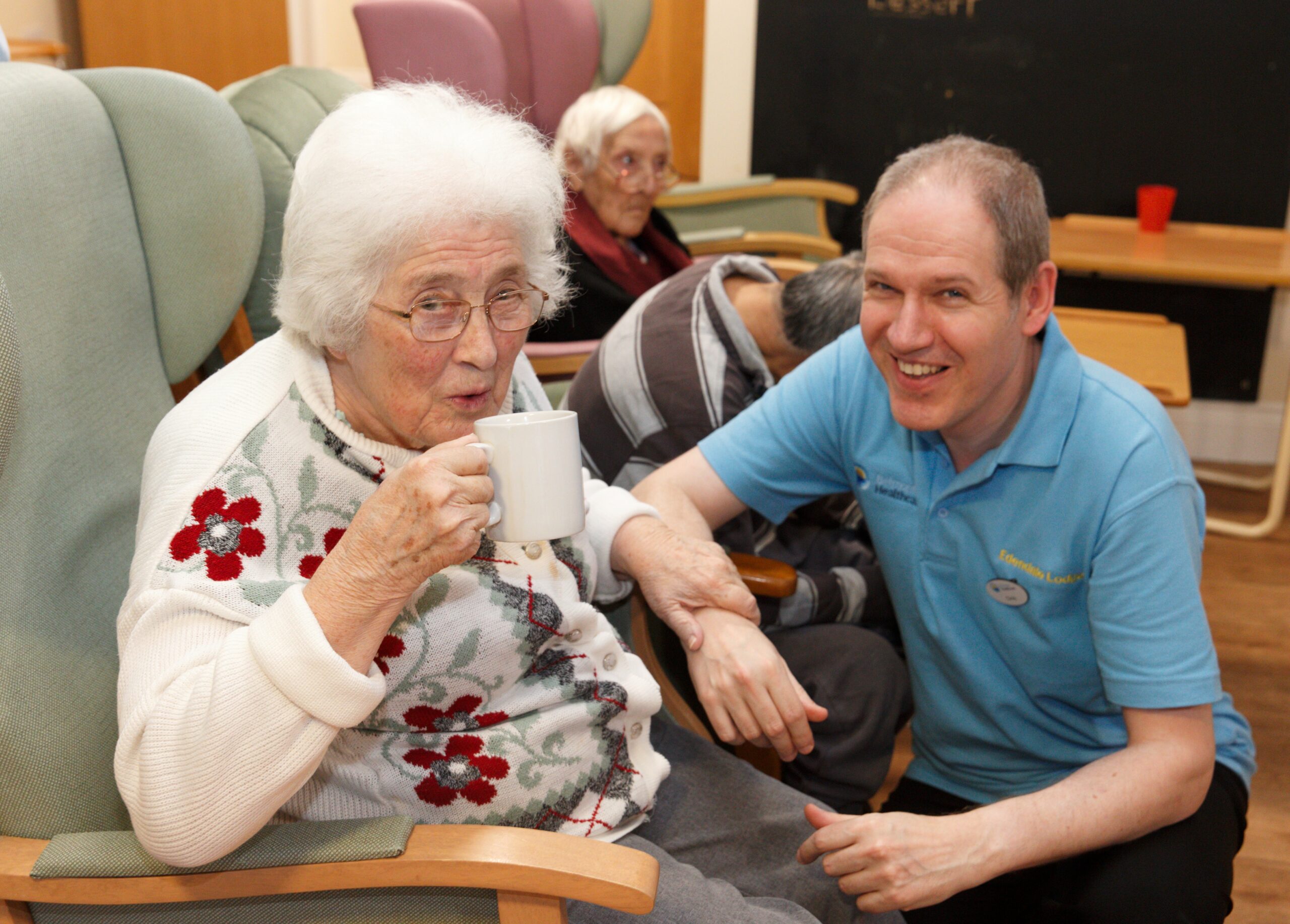
What types of care do you offer in Care Homes?
We do our best to meet the needs of our residents at all times, whether they are here for only one day or for a longer period of time. We also offer specialised care services, such as;
I’m looking for respite care, which of your homes offer this?
Most of our homes and the south east offer short-term care, which can be booked ahead of time or on short notice.
Are Belmont Care Homes certified and inspected by authorities?
The Care Quality Commission has signed up Belmont Care Homes and given its approval (CQC). The CQC looks for new ways to make sure that the health and social care services in England are safe, well-run, considerate, and of high quality.
What is the difference between a care home and a nursing home?
Nursing care is like residential care in that it helps people who need a registered nurse to watch over them all the time. Residential care gives people who need extra help and support a place to live that feels like home and is supervised by staff who are on call 24 hours a day, 7 days a week.
Are there any State Benefits we may be entitled to?
Most state benefits are based on a person’s income. Attendance Allowance is an exception. It is a tax-free state benefit that is paid to all people over 65 who have needed care (help with essential daily tasks like washing and dressing) for more than six months in a row.
There are two rates for Attendance Allowance: a lower rate for people who need help only during the day or night, and a higher rate for people who need help both day and night. In 2015/16, the lower rate is £55.10 per week and the higher rate is £82.30 per week. Claim forms can be picked up at larger Post Offices or Citizens Advice Bureaux, or they can be downloaded from www.direct.gov.uk.
People under 65 who need care will still be able to get an allowance, but it will be in the form of a Disability Living Allowance.
Is there free nursing care?
If a person in a nursing home is found to need nursing care from a registered nurse, the NHS will pay for it. This cost is a flat rate of £112 at the standard rate or £154.12 at the higher rate a week in England and £140.90 a week in Wales for 2015/16. It is called NHS-funded nursing care (formerly known as the registered nursing care contribution).
Anyone moving into a nursing home should be checked to see if they are eligible for nursing care paid for by the NHS. If so, the nursing home will receive this money immediately. After that, the assessment is done again every year, and it is possible that people will be re-banded after each one.
Continuing Health Care
Some people with long-term health needs may be able to get the Primary Care Trust to pay for all of their nursing home costs (PCT). A designated nurse from the PCT does a continuing care health assessment to see if a person is eligible. This assessment is then taken to a panel to talk about whether the person meets certain criteria.
The assessment should be done with the resident’s knowledge and input, as well as that of the person’s next of kin and any other professionals who are helping to care for the person. In some cases, like when a person has a terminal illness with a life expectancy of one month or less, the assessment process can be sped up.
What if we want a more expensive care home?
You can choose a care home that costs more than what your local council usually pays for a person with your assessed needs, but you may need to find a way to pay the difference.
If the council can find a place that meets your needs but you still want to move into a more expensive care home, they can ask a third party (usually a relative or friend) to pay the difference. This is called a ‘top-up fee’. Because you’ve been instructed to pay only what you can afford, you cannot pay this on your own.
If your local council can’t find a place in your area that meets your needs, they should be willing to pay more than they usually do.
Whether you need help with how to choose a care home, would like a quote or have a question, we’re happy to reply to you by email or call you back at a time to suit you.
Simply fill in the form and a member of our team will be in touch, or you can call us on the contact number provided below.